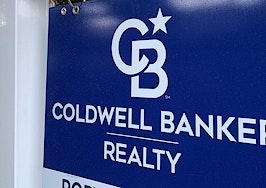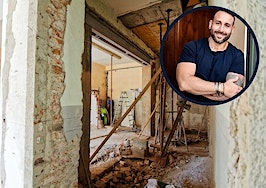As someone who spends nearly all day every day talking and writing about money, I hear it all. And I’m consistently shocked at the myths and misconceptions that otherwise smart, successful people have about investing, real estate and personal finance.
It doesn’t help that our society still harbors a taboo around talking about money. It’s hard to learn when you’re afraid to even bring up topics around personal finance.
I suspect that you still secretly believe at least a few of the following real estate and money myths. Check your assumptions at the door and reach out to me directly to challenge me on these.
Myth: Renting is throwing money away
I don’t own my own home. But I own an interest in over 2,000 units of real estate investments.
Renting comes with plenty of perks. You don’t have to hassle with repairs or maintenance, which cost both time and money. I haven’t done anything more than replace a lightbulb in nearly nine years.
You can pick up and leave when you’re ready to move. In my case, I move countries every few years, which is a lot harder when you own a home. I should know — when I first moved abroad, I kept my home in Baltimore as a rental property. After tenants trashed it, I ended up selling it from abroad. Sadly, I sold it for less than I could have when I lived there.
When you buy a home, you take an initial loss on closing costs. Actually, it’s worse than that, because you can’t sell without incurring tens of thousands in additional closing costs and concessions. It typically takes three to six years for homes to appreciate in value enough to cover those two rounds of costs.
In other words, buying a home can lock you in place for years.
You also take on the risk of changes outside your control that affect your home’s value. The real estate market sometimes dips, of course, but it goes beyond that.
My sister and her husband bought a home specifically because of the local public school system. When their kids finally reached school age, the local municipality tried to move them into what they considered a weaker school district. Not only does that impact their children’s education, but it also plunges their home’s value.
In short, renting is a lifestyle choice, a decision based on your personal priorities and needs. Don’t let anyone tell you that homeownership is right for everyone.
Myth: Rental cash flow is ‘the rent minus the mortgage payment’
I was foolish enough to believe this when I bought my first few rental properties. And, of course, I ended up losing money on them every year.
If the general public had any idea about the expenses that come with owning a rental property, they might not be so quick to hate on landlords. Rental properties come with a slew of irregular but huge expenses, from repairs and maintenance to vacancy rates to collection and default-related costs. Those are on top of property management costs, which are significant.
In the industry, investors refer to the “50 Percent Rule” — that roughly half of the rent will go toward non-mortgage expenses. It’s surprisingly accurate.
Myth: You can time the market
People love to try to time the market. And they inevitably muck it up.
It goes for stocks and it goes for real estate. I hear people say all the time, “I’m going to wait until the housing market dips, then I’m going to buy properties.” Well, guess what? The next dip may not come for another six years, and when it does come, the low point might still be higher than today’s prices. (The low point that you would almost certainly miss, by the way.)
The smartest, most informed experts in the industry can’t predict or time the market. If they can’t do it reliably, you certainly can’t.
Eat a slice of humble pie before the universe force feeds you one, and don’t try to time the market — any market.
Myth: It takes a lot of money to invest in real estate
I’ve invested in real estate with as little as $1 (Concreit), or $10 (Groundfloor), or $20 (Ark7), or other small amounts on other real estate crowdfunding platforms.
Nor is crowdfunding the only option. You can invest in publicly traded REITs or a variety of other ways to invest in real estate without much cash.
Technically, you can even flip houses with no money. But beware that it takes more skill than investing in crowdfunding or private equity real estate.
Myth: It takes a lot of work and skill to invest in real estate
If you buy properties directly, it takes an enormous amount of work and skill. As outlined above however, you have plenty of options for passive real estate investing.
Passive real estate investments include crowdfunding, REITs and private equity real estate investments. You transfer in the funds, and then sit back and enjoy the cash flow and profits.
Granted, you still need to do your due diligence before investing. You have to vet the investment, review the underwriting and business plan. Otherwise you might as well be gambling.
But once you’ve vetted the investment and feel confident in it, you don’t have to lift another finger.
Myth: Only millionaires invest in private equity real estate
Let’s get one thing straight: “Private equity” simply refers to investments owned by private companies, not publicly traded ones. There’s nothing mysterious about it.
The classic example in this industry are real estate syndications. Again, that’s just a fancy term for group real estate investments. You and other passive investors become partial owners in a large property, such as an apartment complex or mobile home park.
Investing in private equity real estate gives you all the advantages of direct ownership with none of the headaches. You earn cash flow, appreciation and tax advantages without the hassles of becoming a landlord. Private equity real estate syndications typically target 15 percent to 30 percent annualized returns.
Like most real estate myths, this one has a kernel of truth. Historically, private equity has been the preferred investment of the rich, and until recently, most real estate syndications only allowed accredited investors.
Today, however, anyone can invest in these group real estate investments. The minimum investments remain high, typically $50,000 or more, unless you invest as a member of a real estate investment club. In our Co-Investing Club, for example, we vet new deals together each month, and members can participate in any deal with $5,000.
Myth: It takes decades to become a millionaire
Well, it does take decades if you only save 5 percent to 10 percent of your paycheck like the average person.
But if you’re willing to save and invest more of it, you may well become a millionaire in under 10 years.
Here’s how much money you’d have after 10 years, at different monthly savings amounts and investment returns:
| 6% | 8% | 10% | 12% | 14% | |
| $500 | $82,309 | $91,707 | $102,446 | $114,733 | $128,805 |
| $750 | $123,463 | $137,560 | $153,670 | $172,099 | $193,208 |
| $1,000 | $164,618 | $183,414 | $204,893 | $229,466 | $257,610 |
| $1,250 | $205,772 | $229,267 | $256,116 | $286,832 | $322,013 |
| $1,500 | $246,927 | $275,121 | $307,339 | $344,199 | $386,415 |
| $1,750 | $288,081 | $320,974 | $358,562 | $401,565 | $450,818 |
| $2,000 | $329,235 | $366,828 | $409,785 | $458,932 | $515,220 |
| $2,250 | $370,390 | $412,681 | $461,009 | $516,298 | $579,623 |
| $2,500 | $411,544 | $458,535 | $512,232 | $573,665 | $644,025 |
| $3,000 | $493,853 | $550,242 | $614,678 | $688,397 | $772,830 |
| $3,500 | $576,162 | $641,949 | $717,125 | $803,130 | $901,635 |
| $4,000 | $658,471 | $733,656 | $819,571 | $917,863 | $1,030,440 |
| $4,500 | $740,780 | $825,363 | $922,017 | $1,032,596 | $1,159,245 |
| $5,000 | $823,089 | $917,070 | $1,024,464 | $1,147,329 | $1,288,051 |
| $6,000 | $987,706 | $1,100,484 | $1,229,356 | $1,376,795 | $1,545,661 |
| $7,000 | $1,152,324 | $1,283,898 | $1,434,249 | $1,606,261 | $1,803,271 |
| $8,000 | $1,316,942 | $1,467,312 | $1,639,142 | $1,835,727 | $2,060,881 |
| $9,000 | $1,481,559 | $1,650,726 | $1,844,034 | $2,065,192 | $2,318,491 |
| $10,000 | $1,646,177 | $1,834,140 | $2,048,927 | $2,294,658 | $2,576,101 |
Before you tell me that 10 percent to 14 percent annualized returns are unrealistic, I’ll point out that the S&P 500 has returned an average of 10.26 percent since 1957, and refer you once again to private equity real estate syndications targeting 15 percent to 30 percent returns.
Is it easy to become a millionaire in 10 years? Not necessarily, at least for someone earning a typical middle-class salary. Is it possible? Absolutely.
As a final thought here, consider that there are over 59.4 million millionaires around the world. You can become one of them if you’re willing to save and invest more of your money rather than spending most of it.
Myth: I’m too old/young to invest in real estate
For every person I talk to in their 50s or 60s (or older) about investing in real estate, I talk to another in their 20s.
Investors at every age can appreciate the passive income, price growth and tax benefits of real estate investments. And that says nothing of the hedge against inflation, the diversification from the stock market, or the use of leverage to pursue infinite returns.
There’s no such thing as too young or too old to invest in real estate. Hard stop.
Myth: Cash is safer than any investment
Safe from which risks, exactly?
Sure, cash hidden under your mattress is safe from principal losses. But it’s not safe from inflation or theft or you forgetting it’s there, or you dying without telling your children where it is.
In 2022, inflation reached 9.1 percent. Money sitting around in cash experienced a real loss in value of 9.1 percent.
Investments such as stocks or real estate come with risk, of course. Your investment can lose value based on market forces. But you are guaranteed to lose money on your cash, as inflation nibbles it down toward nothing over a long enough time period.
Final thoughts
We should all question our assumptions and the narratives we tell ourselves more often. It’s true for politics, it’s true for personal finance and it’s true for real estate.
If I listened to “the crowd,” I never would have moved from Baltimore to Abu Dhabi. My friends and family all gasped when I told them the news: “What?! The Middle East?! Isn’t it unsafe?!”
Actually, Abu Dhabi routinely ranks in the top five safest cities in the world. Baltimore ranks among the least safe cities. So much for the wisdom of crowds.
While you’re at it, question other assumptions such as the 4 percent rule for retirement, the rule of 100 for asset allocation, the notion of calculating your retirement needs based on your current income, and the notion that high-return investments always come with equally high risk. There’s a kernel of truth in each, but only a kernel, and far more nuance than the average person realizes.
Get facts from authoritative sources and people who live and breathe that topic. And if you’re on the trail to join the two-comma club like those other 59.4 million people in the world, find like-minded people to walk it with.
G. Brian Davis is a real estate geek and co-founder of SparkRental.
Get Inman’s Property Portfolio Newsletter delivered right to your inbox. A weekly roundup of news that real estate investors need to stay on top, delivered every Tuesday. Click here to subscribe.













